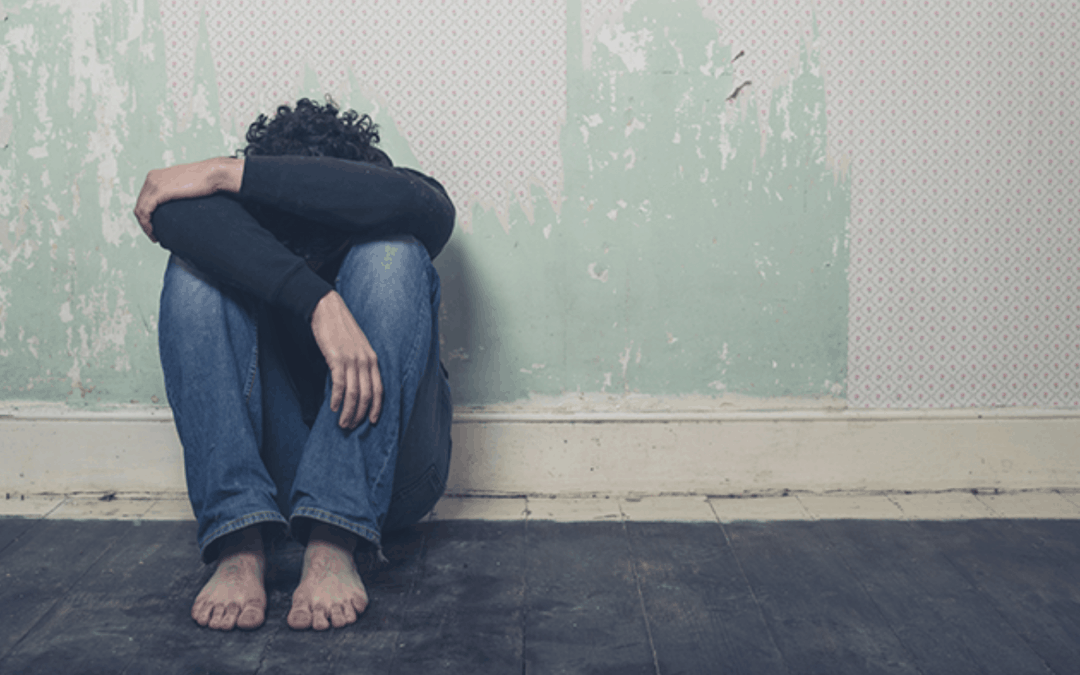Overcoming Fear and Anxiety
Fear is a powerful and primitive human emotion. It alerts us to the presence of danger and it was critical in keeping our ancestors alive.
In contrast to fear, anxiety is a general state of distress that is longer lasting than fear and is usually triggered by something that is not specific, even though it produces physiological arousal, such as nervousness and apprehension.
Yet, both fear and anxiety are emotions that are triggered in response to a threat.
Fear is a natural emotion and a survival mechanism. When we confront a perceived threat, our bodies respond in specific ways.
Physical reactions to fear include sweating, increased heart rate, and high adrenaline levels that make us extremely alert. This physical response is also known as the “fight or flight” response, in which our body prepares to either enter combat or run away. This biochemical reaction is likely to be an evolutionary development. It’s an automatic response that is crucial to our survival.
Strategies to help beat fear, anxiety and stress
Breathe deeply
You’ve probably heard that breathing is a great way to relieve stress. But what’s interesting is the reason why it works so well.
Deep diaphragmatic breathing is a powerful anxiety-reducing technique because it activates the body’s relaxation response, It helps the body go from the fight-or-flight response of the sympathetic nervous system to the relaxed response of the parasympathetic nervous system*
*The parasympathetic nervous system (PNS) controls homeostasis and the body at rest and is responsible for the body’s “rest and digest” function. The sympathetic nervous system (SNS) controls the body’s responses to a perceived threat and is responsible for the “fight or flight” response.
Slowly expose yourself to the things you’re afraid of, so they’re no longer unfamiliar to you*.
*Please note, the following strategy is just to help point people in the right direction. Please contact the relevant expert or professional if required.
EXAMPLE While working with someone who has a fear of spiders—arachnophobia—an exposure therapist might first ask the person to picture a spider in his or her mind. This might lead to several sessions in which the therapist asks the person to imagine more intense scenes with the spider, all while teaching coping skills and providing support. Once the anxiety response is reduced, the therapist may progress to real life exposure. In this type of exposure, the therapist might start by placing a contained spider at the far end of the room and lead up to placing the spider in the person’s hand.
However, exposing yourself to fears or prior traumas without first learning the accompanying coping techniques — such as relaxation, mindfulness, or imagery exercises — can result in you simply being re-traumatised by the event or fear.
Therefore exposure therapy is typically conducted within a psychotherapeutic relationship with a therapist trained and experienced with the technique and the related coping exercises.
Spend time with your friends
Social support reduces anxiety. Decades of research suggest that people with close friends are better able to survive traumatic events.
Although it may seem counterintuitive, having strong social support can actually make you more able to cope with problems on your own, by improving your self-esteem and sense of autonomy.
Physical activities
Take up a sport or a form of physical activity to protect yourself against the effects of stress, which include anxiety and fear.
Working out can help you to feel better.
Exercise helps release anxiety in three main ways:
• It releases brain chemicals associated with easing depression, like endorphins.
• It enhances your immune system, lessening the chance of depression.
• It increases body temperature, which helps people calm down.
Make a concrete decision to continue with your exercise programme.
Helping others protects you from the negative effects of stress
When you’re stressed, it might seem like you hardly have the time or the energy to invest in other people. But you may want to make it a priority, since research suggests that helping others is an easy way to reduce your stress levels.
In one study, researchers tracked a number of adults over the course of a week, asking them to record any stressful events they experienced, how often they helped other people, and their psychological and emotional states.
Results showed that, on days when the adults had helped others, they experienced less of the negative emotions that stressful events would usually trigger in them.
Those helping behaviours ranged from visiting someone in hospital to helping kids with schoolwork.
When you give time to and help others be assured that you’re having a positive impact on someone else.
Practice mindfulness meditation to reduce anxiety, depression, and pain
Mindfulness is a type of meditation in which you focus on being intensely aware of what you’re sensing and feeling in the moment, without interpretation or judgment. Practicing mindfulness involves breathing methods, guided imagery*, and other practices to relax the body and mind and help reduce stress.
*EXAMPLE; Visualise waves gently lapping on the shore or the light filtering through the leaves of the trees. Embrace the potential advantages of stress and you’ll be more likely to learn from the events.
Positive effects of stress
We typically talk about stress as something to fear and avoid, but psychologists say that stress can be a sign that your life is meaningful. The key to not letting stress get out of hand is embracing its potential upsides.
Thinking about the positive effects of stress can improve your physiological response to a challenging situation and help you learn and grow from it.
At Guardian Defence we place emphasis on eustress, or positive stress. This type of stress has the following characteristics:
- Motivates & focuses energy.
- Is short-term.
- Is perceived as within our coping abilities.
- Feels exciting.
- Improves performance.
As ‘stress inoculation drills’ play a big part in self defence training we ensure that all of our students leave our classes in a positive mindset.
We achieve this by giving attention to each students development, ensuring we finish the class with a cool down, muscle relaxing exercises and diaphragmatic breathing exercises.
Please note that all of our Krav Maga Self Defence Classes are based in Manchester





Recent Comments